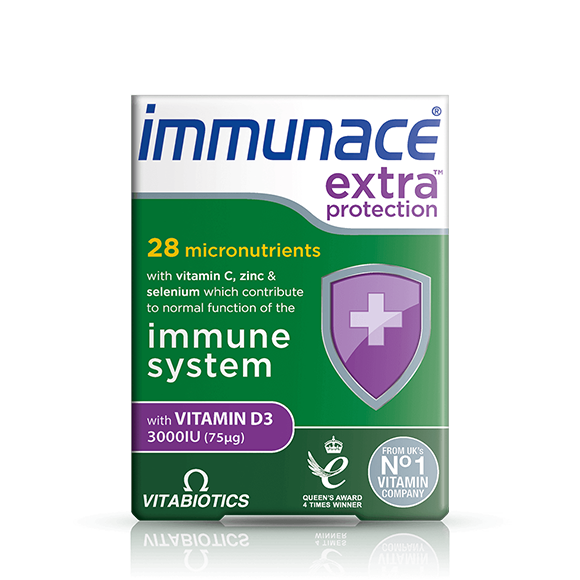2. Vitamin C and the immune system
Vitamin C contributes to the normal function of the immune and nervous systems, and helps to protect your cells against the effects of free radicals.
Vitamin C is found in a wide array of fruits and vegetables, including kiwi fruits, peppers, citrus fruits, such as oranges and grapefruit, broccoli, potatoes and strawberries. You can read more about The Best Vitamin C Foods in our handy guide.
3. Vitamin A and the immune system
Vitamin A contributes to the maintenance of the normal function of the immune system and the maintenance of normal mucous membranes. These membranes are found on the linings of the nose, mouth, lungs, and stomach, and such form an important barrier for the body.
The best food sources of vitamin A include liver (avoid if pregnant), orange and yellow vegetables, such as carrots, sweet potatoes and pumpkins, tomatoes and leafy green vegetables, such as kale, spinach and broccoli.
4. Vitamin B and the immune system
The B Vitamins are a group of eight water-soluble vitamins, three of which help to support the immune system: B6 (pyridoxine), folic acid (vitamin B9) and B12 (cobalamin). Vitamins B6 and B12 also support normal functioning of the nervous systems and normal psychological function. B12 and folic acid both contribute to a reduction in tiredness and fatigue.
Vitamin B6 is found in a range of foods, including salmon, chicken breast, potatoes, avocado and bananas. Folic acid can be obtained from eating pulses, such as lentils, leafy greens, including spinach and kale, and certain fruits. Vitamin B12 is primarily found in animal foods, such as meat, fish, milk and eggs. It’s also added to a range of fortified foods, such as plant milks, some soy products and some breakfast cereals. You can find out more in our guide to The Best Sources Of Vitamin B.
5. Copper and the immune system
Copper is an essential trace mineral that helps to support normal immune function. Copper works alongside another important immune supporting mineral, zinc.
The best food sources of copper are liver (avoid if pregnant), oysters, shiitake mushrooms, nuts, such as almonds or cashews, and leafy greens like spinach and kale.








Comments (0)